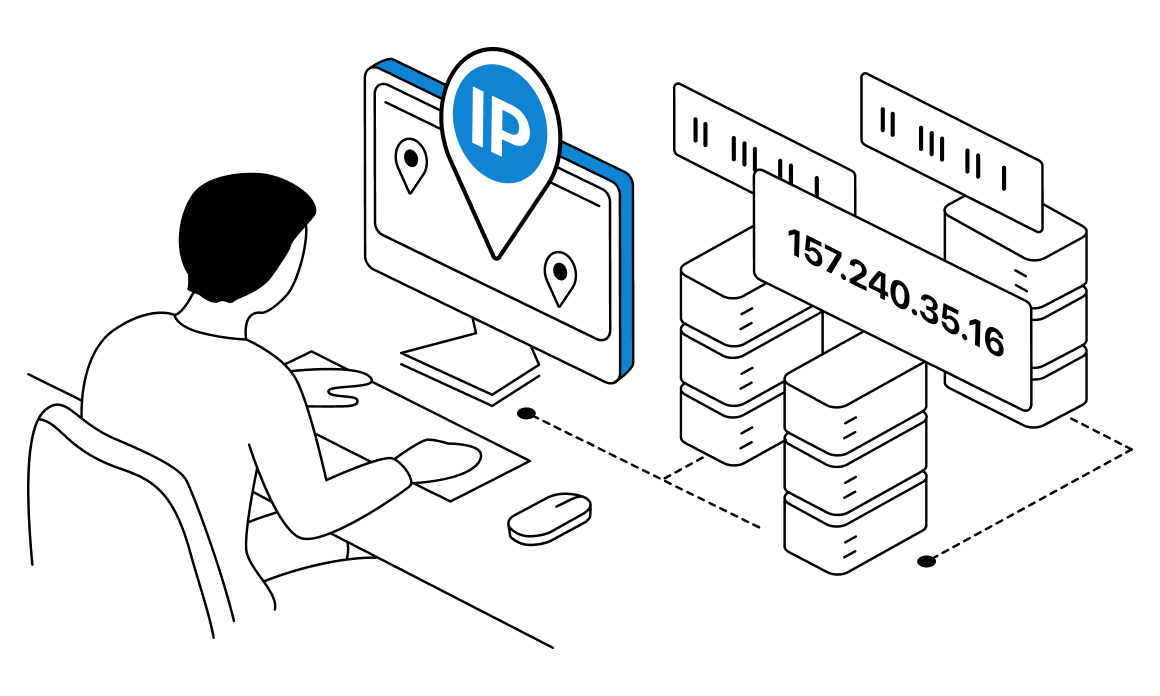In today’s digital age the heartbeat of modern companies is heard through intricate networks and expansive online realms. The term “digitalization” has transcended mere buzzword status and is now the core of what sustains and propels modern enterprises ahead. The dynamic of IP addresses and proxies is the primary component of seamless connectivity, which has become a necessity for online operations.

Understanding the fundamentals and implications of IP addresses as well as proxies is vital for anyone trying to navigate the complex digital world. These components are usually hidden from view but have a significant role to play in assisting businesses in achieving greater digital effectiveness and security. If you’re an entrepreneur or digital enthusiast, figuring out the details of IP addresses as well as proxy addresses can significantly improve your company’s digital capabilities and increase your security against online threats.
What are IP addresses and Proxies?
IP addresses, proxies and other components of the digital infrastructure are the basis of our internet-based communication and transactions. A fingerprint digitally assigned to every device that connects to the internet. They facilitate seamless communication and data transfer across the internet, ensuring that data gets to its destination accurately and promptly.
Proxy servers are intermediaries between your device and the web. When you go to a site they act as a buffer, relaying and intercepting requests. This technique hides your IP address, but it also enhances security and privacy by acting as a barrier against cyber-attacks.
Proxies are a part of Modern Business
In the world of modern business, proxies have emerged as invaluable tools, driving enhanced security and performance. Proxy servers provide secure and anonymous web browsing. Proxy servers protect sensitive information from hackers and eavesdroppers, by concealing IP addresses.
Proxy servers also allow businesses to optimize and manage their operations on the internet. Proxy servers can be set up to filter content, block websites that are malicious or prioritize apps that are essential, ensuring that employees have a productive and seamless online experience.
For global organizations proxy servers give businesses the possibility of access to information that is restricted to regions as well as market data from different geographical areas. This is helpful in conducting market research, analyzing competitive trends and the creation of specific marketing strategies, all critical aspects of modern business growth and growth.
IP addresses in modern-day business
In today’s business world IP addresses are more than just a means to identify the computer. They are the foundation of information sharing, communication and connectivity in the digital realm. Every online transaction, site visit, email exchange, or cloud-based service relies on the accurate and efficient functioning of IP addresses.
In today’s business world data is a sought-after asset. IP addresses allow businesses to track user behavior, understand market trends, and then tailor their services to meet consumer demands effectively. This data-driven method does not just increase customer satisfaction however, it helps make better informed decisions and create the foundation for sustainable growth of businesses.
Enhancing Security, Efficiency, and Productivity
By delving into the fundamentals of IP addresses and proxies, businesses can optimize their digital operations. Digital efficiency leads to more reliable and quicker internet-based services. This is a good thing as it increases customer satisfaction and loyalty. Regarding security, using proxy servers as a means to hide IP addresses helps businesses secure their sensitive information while preserving their privacy in a world of cyber-security that is becoming more unsecured.
In conclusion, IP address and proxy servers have been the unsung heros of the digital period, creating a connected and modern world. Understanding their workings and harnessing their capabilities can open up many possibilities for companies, leading to improved efficiency, security improvements, and ultimately, business expansion. Companies that wish to thrive in this digital age need to know the nuances of the fundamental components.